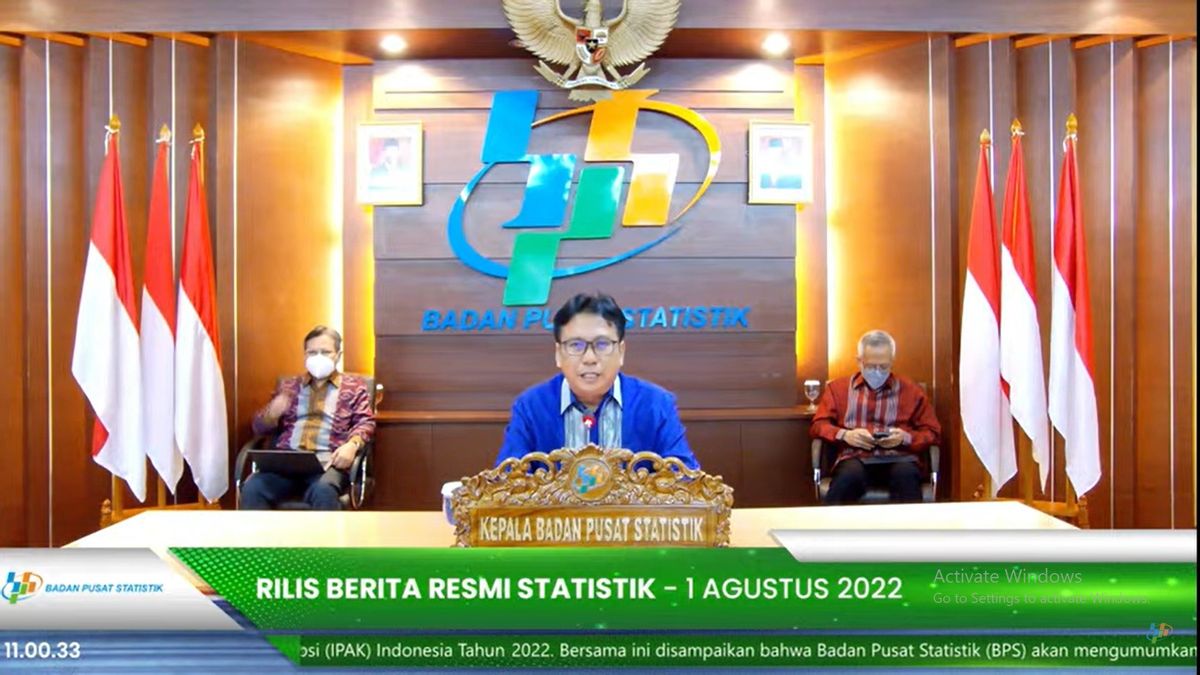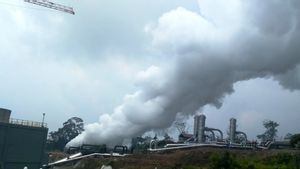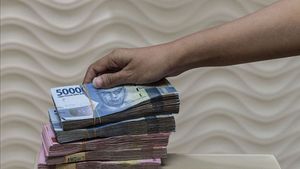JAKARTA - The Central Statistics Agency (BPS) has just released information that revealed that the inflation rate in July 2022 on an annual basis (year on year / yoy) reached 4.94 percent.
This level has exceeded the 2022 state budget target which is estimated at around 3 percent plus minus 1 percent.
In fact, this new BPS minutes has exceeded the current government's outlook by 4.5 percent.
The government itself still has time in the second half to control inflation until the end of next year.
Facing this situation, Head of BPS Margo Yuwono said, there are several strategic steps that can be taken by the government.
“Actually, BPS cannot make projections on any indicators because our job is only to take pictures of the conditions that have occurred. However, the factors related to inflation are clear. First, inflation in the food sector is due to price volatility due to weather anomalies," he said via an online channel when answering questions from the media on Monday, August 1.
According to Margo, another factor that causes inflation to tend to be high at this time is the increase in energy prices.
“This increase in energy can still be reduced by the provision of government subsidies. Thus, the role of subsidies is an important part so that inflation is not too high. So the key is how to manage energy prices in the domestic market,” he said.
Margo added that the government's move to continue to provide subsidy injections for strategic commodities is considered very effective to reduce the rate of inflation.
In his view, great pressure will occur if the government does not intervene and release prices according to market mechanisms.
"If prices are left at current prices, inflation will certainly be high. The government must be able to reduce energy prices so that they do not have a broad impact on all sectors," he stressed.
To note, President Joko Widodo (Jokowi) has given approval to the Minister of Finance (Menkeu) Sri Mulyani to increase the 2022 subsidy budget.
Historically, the budget for energy subsidies and compensation has usually been around Rp. 100 trillion per year.
Meanwhile, for this year the amount has jumped to Rp500 trillion in line with the upward movement of world energy prices.
The English, Chinese, Japanese, Arabic, and French versions are automatically generated by the AI. So there may still be inaccuracies in translating, please always see Indonesian as our main language. (system supported by DigitalSiber.id)













